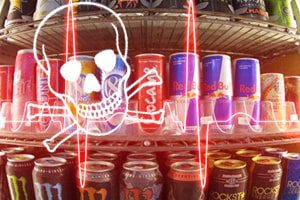
A number of deaths have been associated with the very popular, very caffeinated energy drinks and, newer, energy shots, according to federal officials. Making matters worse, energy drinks are not regulated, which makes it nearly impossible to both monitor related activity and to release information concerning any related injuries and deaths. Meanwhile, the number of […]
 A number of deaths have been associated with the very popular, very caffeinated energy drinks and, newer, energy shots, according to federal officials.
A number of deaths have been associated with the very popular, very caffeinated energy drinks and, newer, energy shots, according to federal officials.
Making matters worse, energy drinks are not regulated, which makes it nearly impossible to both monitor related activity and to release information concerning any related injuries and deaths. Meanwhile, the number of deaths associated with energy drinks in recent years has risen. In fact, based on U.S. Food & Drug Administration (FDA) records and an interview between an agency official and The New York Times, 13 deaths in the past four years may be related to the 5-Hour Energy drink.
The recent agency disclosure is the second time that the FDA has recently cited energy drinks and fatalities, said The New York Times. Unlike other energy drinks packaged as traditional beverages, the 5-Hour Energy drink is a very caffeinated, 2-ounce “energy shot.”
A New York Times review of a summary of agency records revealed that, in October 2012, the FDA received five filings concerning deaths associated with another energy drink, Monster Energy. Also, said The New York Times, since 2009, 5-Hour Energy was discussed in about 90 FDA filings, including more than 30 reports that involved significant or life-threatening injuries, such as heart attacks and convulsions. A spontaneous abortion was involved one of these cases.
As we’ve explained, energy drinks, like Monster, are considered dietary supplements, which are not regulated by the FDA, as are other consumer food products. Instead, energy drinks are considered dietary supplements because the product labels claim the drinks are created with all-natural ingredients that are exempt from FDA regulations. And, like other dietary supplements on which we’ve written, significant concerns about the safety of these products exist as more and more people report health problems related to their use. Because of the lack of regulation, records on reported problems associated with these products are sparse.
Makers of energy drinks such as Red Bull and Monster must advise the FDA of serious health concerns related to the use of their products; however, that is not always the case. For example, since 2007, Monster only submitted one report, which is must less than what the FDA has in its records, according to a prior New York Times report. The one report, issued by Monster Beverage Corp., involved the death of one consumer; yet, agency records reveal that at least 20 adverse health events were blamed on Monster energy drinks. Those reports include four deaths.
Energy drink labels claim the products do not contain more caffeine than a typical cup of coffee, according to a Washington Post report; however, with no appropriate regulations, there is insufficient available evidence to validate those claims. Also, Energy drinks typically contain other stimulants, such as guarana and taurine, which are additives that claim to be all natural and, like other additives found in supplements, they are not subject to FDA regulation. Again, there is not much credible data to show these products and ingredients are safe for human consumption or, what levels are considered safe.


